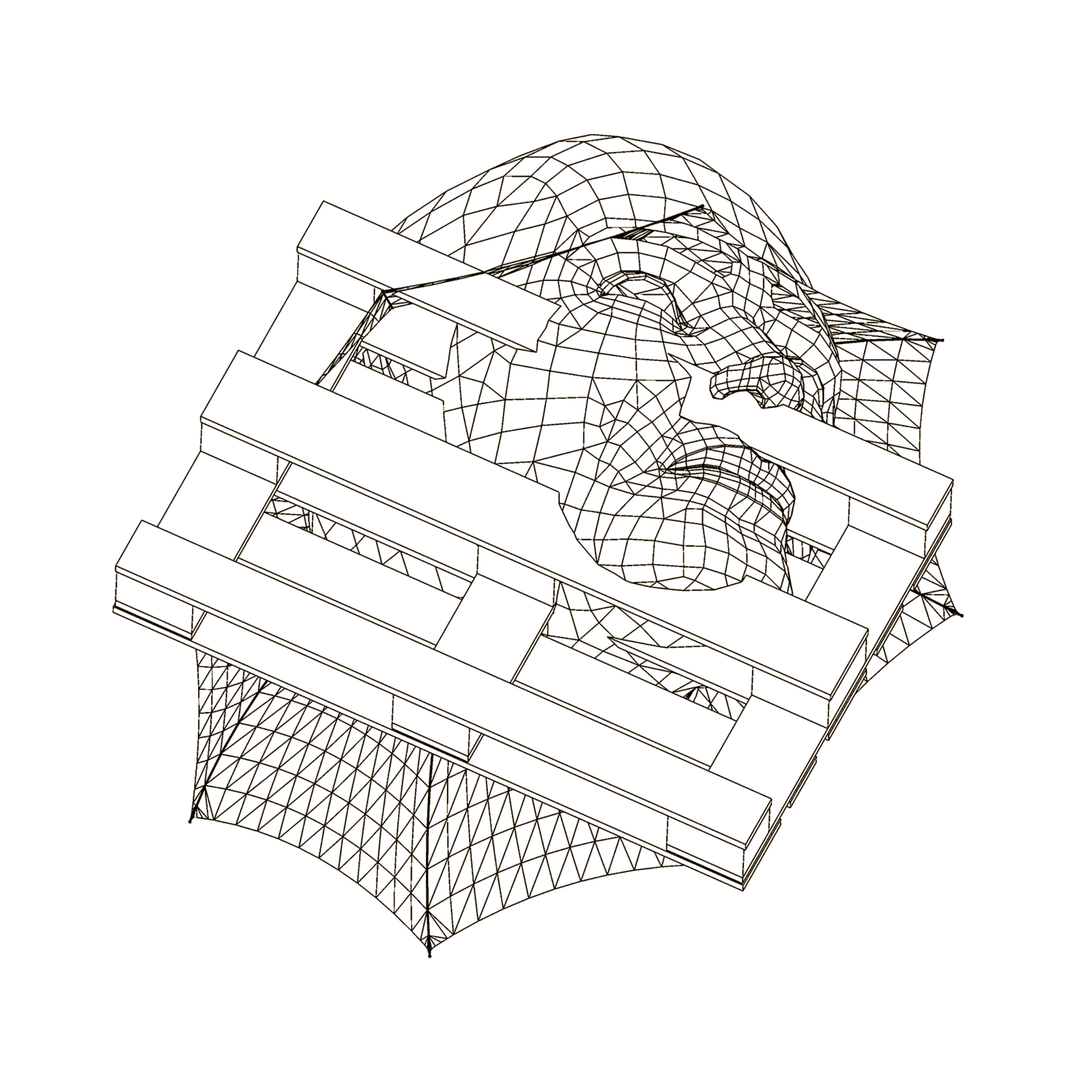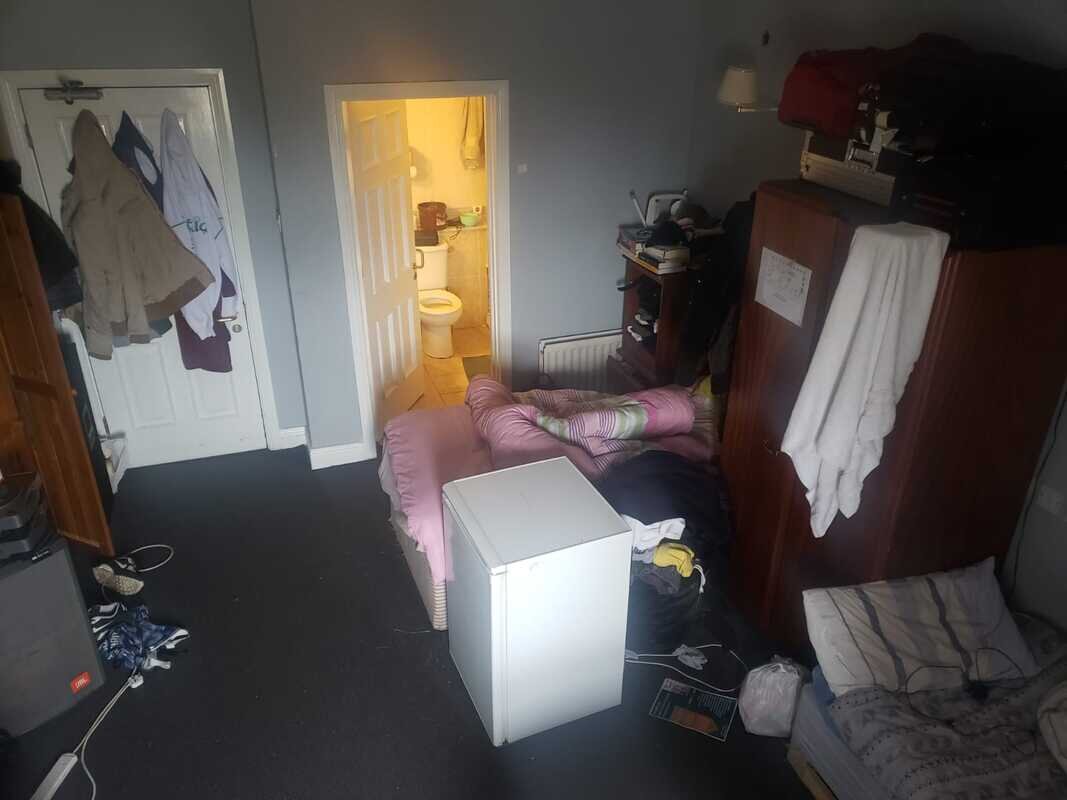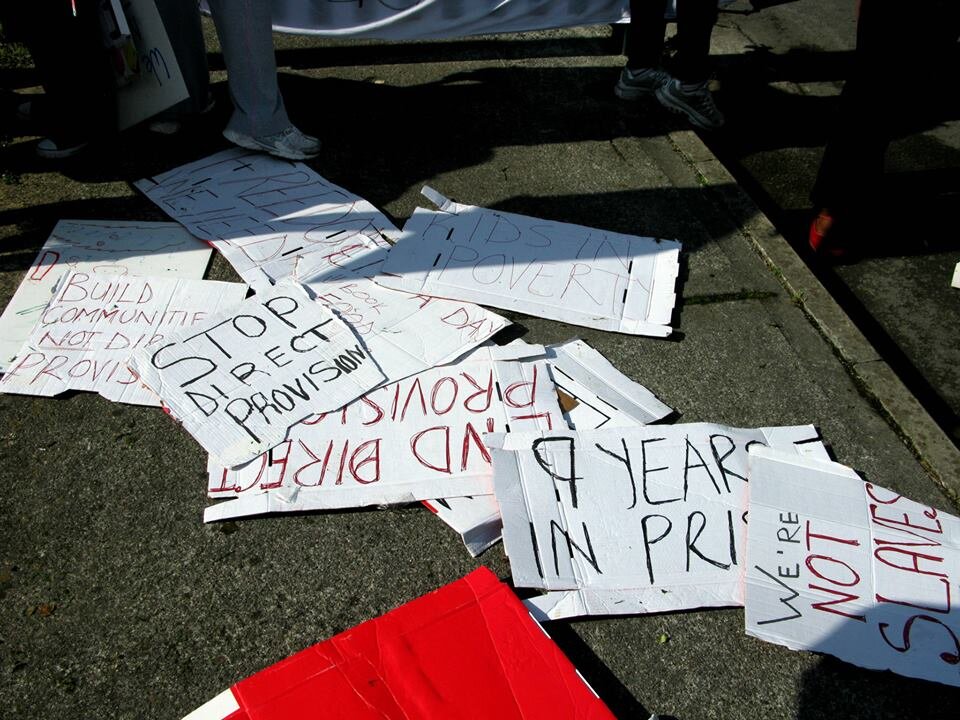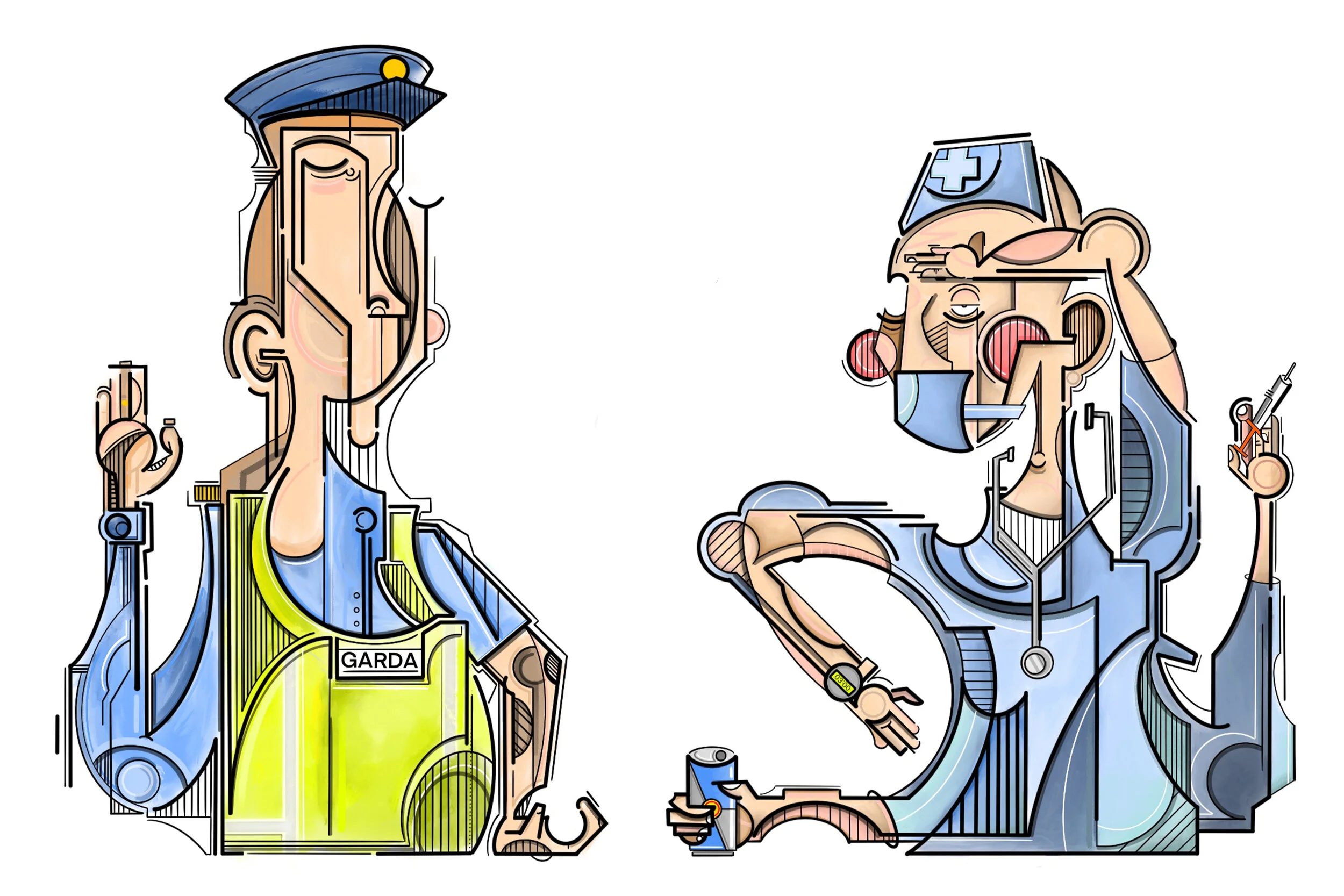Direct Provision Explained
Ireland’s inhumane reception system for people in need of international protection has come under renewed focus following the timely resurgence of Black Lives Matter.
We explain what Direct Provision is, what life is like for the people in Direct Provision, and offer suggestions on how to abolish this systemic oppression by the Irish State.
The murder of George Floyd at the hands of Derek Chauvin, a Minneapolis police officer, has sparked fury in everyone around the world opposed to systemic oppression. Be it the racism demonstrated in the seemingly endless murders of African-Americans at the hands of “law enforcement”, or in the bureaucratic processes which dehumanise people in need of international protection, the public are outraged and have taken to the streets. In this extraordinary moment, it’s important to educate ourselves about systems of oppression both abroad and closer to home.
What is Direct Provision?
Direct Provision is described on the Department of Justice website as a “means of meeting the basic needs of asylum seekers while their claims for refugee status are being processed”. Essentially, asylum seekers are provided with accommodation and food. The people are housed in 39 “accommodation centres” around Ireland, many in extremely isolated locations. The accommodation centres were formerly hostels, failed hotels, and other institutions such as convents. The majority of them are run for profit. The State then pays hundreds of millions to the owners of these institutions and the contractors who manage them. The primary contractor is the Aramark Corporation, who own Avoca and Chopped and make billions of dollars catering in US prisons. Over €1bn has been paid out to private firms who own Direct Provision centres.
Aramark - Owners of Avoca and Chopped, profiteers of Direct Provision and the American prison system.
People must remain living in Direct Provision centres until they are either granted protected status or deported. When initially established in the year 2000, the system was intended to accommodate asylum seekers on a “short-term” basis of up to six months. The average time spent in Direct Provision is now 14 months (it used to be above two years). Hundreds of people have been left in limbo for over five years, with some cases taking up to a decade.
Amnesty Ireland have described it as a “human rights scandal”. The United Nations have criticised the system for keeping its residents in limbo and, as recently as 2019, questioned the Irish State’s “continuous failure” to provide adequate accommodation for asylum seekers.
Who is in Direct Provision?
There are approximately 7500 people living under Direct Provision. Over 2000 of these people are children. The legal status of these people are asylum seekers claiming international protection. This means they are not yet recognised as refugees, but are looking for safety in another country since they are at serious risk of human rights abuses in their own. Seeking asylum is a human right.
In human terms, the people in Direct Provision are mothers, fathers, sons, and daughters. Doctors, students, sociologists, and photographers. Musicians, politicians, and human rights activists. Normal people who escaped situations of extreme brutality, such as war-torn Sudan or LGBT crackdowns in Russia. But the best way to understand who these people are is to listen to their own words:
“I applied five times to get to a place where I’ll be able to be travelling to and from school.
I am still going through the predicament as we talk, of three hours on the road from Waterford to UCD every morning and three hours every evening from UCD to Waterford.
There is nothing you can change about Direct Provision. It just has to be abolished. It just has to be done away with. It is devilish. It is evil. It is good for no purpose.”
— Lesley Mkoko, student
“In Ireland, I did my best to avoid claiming international protection. I knew it wasn’t good, and I had never wanted to go through this. It was the only way I found to proceed, through the lawyers. Even though I knew about Direct Provision I couldn’t imagine how disregarding it is of actual human needs.
The whole system is designed to remove one of the core human needs — imagination, the ability to dream. But I have a strong feeling that Irish people will realise soon that Direct Provision is not just about us, it’s also about them. It’s about what kind of Irish Republic they want to see.”
— Evgeny Shtorn, sociologist and LGBT activist
““A day in Direct Provision is full of boredom, and stress and anxiety about whether you’re allowed to stay in the country or not. It’s life in limbo. I had €19.10 a week to live on. I was in the middle of nowhere in a one-street town. I was allowed to go to Galway and Castlebar, but I didn’t have the money to travel so I was forced to remain in the town, that’s why people call it an open prison. You’re forced to live in those incarcerated sites.
Direct Provision is a stain on Irish society. I will never forget the brothers and sisters who are still incarcerated.”
— Vukasin Nedeljkovic, photographer
“My daughter needs her own space, where she can invite friends. We live in a two-bed unit. I share a bedroom with my daughter and my son has his room. The food is canteen food. It’s 200 or 300 people sitting there eating, three times a day, every day. It is not a lifestyle you would want.
When I arrived here first I was without my children. At first I did nothing. I was clinically diagnosed with depression. The first year was very hard and not having the kids with me. Then I said: ‘OK, I have to get out of this.’ I started showing signs of being an activist. I am a fighter. I can speak up on things, I thought. If I didn’t, I would never see my kids again.
In 2013 and 2014, I started volunteering fully with the Irish Refugee Council on an internship. That is when my real day-to-day life started.”
— Ellie Kisyombe, candidate for the Social Democrats and Co-Founder of Our Table (listen to her speak on the Blindboy Podcast)
What is life like in Direct Provision?
People in Direct Provision often live in shared spaces, with up to eight others. Families have a two-room unit in the best of situations. Management can enter your room at any time, eliminating any sense of privacy for the residents. Each adult is provided with €38.80 per week (€29.80 for children) for expenses including toiletries. They are allowed to travel to nearby towns and cities, but since many of the centres are isolated from local communities with no public transport, it’s virtually impossible for them to go far. Residents feel like they are in an “open prison”.
While a few centres have self-catering, most do not allow people to cook for themselves. Instead, food is provided at set mealtimes. In one centre, a resident described seven pieces of fruit being allowed per person per week. A report reviewing the complaints from residents describes the installation of cooking facilities as the number one issue. Cooking is one of the most important measures to have personal control over your everyday life and most residents are deprived of the ability to prepare food from their own cultures. There have also been numerous reports of awful hygiene, as the profit motive encourages management to cut costs wherever possible.
Several Irish universities have piloted programmes which allows people in Direct Provision to study for free, but the opportunities are scarce. Until 2018, people in Direct Provision did not have the right to work. This was changed following recommendations from the Government’s 2015 McMahon report. Asylum seekers are now allowed to apply for a work permit, but they must already be waiting in Direct Provision for nine months. Permits must be renewed every six months. Requirements like a bank account, a driving licence and the casual racism faced by many applicants with foreign names mean the chances of a person in Direct Provision getting a job are dishearteningly slim. Only 15% of people in the system found work in 2019. Chillingly, there have been reports that the conditions in Direct Provision have led women into sex work.
People living in Direct Provision are five times more likely to have mental health issues than the average person. One report showed 90% of residents experience depression. The conditions in these centres are entirely unsuitable for children and vulnerable adults, many of whom have experienced trauma as severe as torture before arriving in Ireland. Adults lose their core skills and basic self-reliance without the opportunity to work and socialise. Children need a natural family life, a home, the chance to make friends and challenge themselves, access to child protection services and proper education. They are deprived of these core necessities in Direct Provision. It doesn’t feel hyperbolic to say that forcing parents to raise children in these centres is institutionalised child abuse.
Fundamentally, life in Direct Provision is a constant wait. Updates on application statuses are rarely provided. Just waiting and waiting, entirely excluded from society, for years. Harrowingly, at least 60 people in Direct Provision have died waiting. The Irish Government stopped releasing information about deaths in Direct Provision in 2017.
Why does Ireland have Direct Provision?
Considering the centres are run by for-profit corporations and failing hoteliers, there is an obvious financial incentive for the corporations and hotel owners to keep them open. Lower operational costs mean higher profits, and more asylum seekers means larger contracts. Direct Provision contracts with the government are a guaranteed income, and corporations like Aramark are extremely influential in Ireland. Billion-euro industries don’t disappear without a fight. The owners of the Mosney centre are known to have donated significant sums of money to Fianna Fáil and they are unlikely to be the only Direct Provision profiteers lobbying political parties to keep the system privatised.
It is also almost certain that Direct Provision is maintained to deter asylum seekers around the world from coming to Ireland. This practice is common, most notably in the US with its shocking ICE facilities, or the horrendous Australian detention centres on Manus and Nauru islands. Before Direct Provision was established, asylum seekers in Ireland could look for support from the ordinary social welfare system. According to Fintan O’Toole, the Irish State decided this was attracting people to the country to claim benefits. The Direct Provision system was then devised so that asylum seekers would think twice about leaving the awful circumstances in their home country for the bleak, cruel and prolonged process of “reception” in Ireland.
Some reception system for asylum seekers is necessary. Processing complex asylum applications does take time, but the current system is unacceptable. Direct Provision dehumanises its inhabitants. It sweeps them under the rug of Irish society, provides them with the absolute bare minimum, disregards their mental health needs entirely, and eventually deals with these vulnerable people when the faceless bureaucratic machine finally, years later, gets around to assessing their application.
What can we do to end Direct Provision?
Educate.
Read more about Direct Provision from the links provided below. Share this piece and talk about Direct Provision with your friends and family. Armed with the facts, you can engage with people who do not share the same views as you in a respectful and facts-based discussion.
Protest.
Public demonstrations are the most powerful lever people have to raise awareness about important issues and show solidarity with marginalised groups.
Fundraise.
Organisations like the Movement of Asylum Seekers in Ireland, the Irish Refugee Council, Nasc and Doras desperately need funding to continue their excellent work. By running fundraisers and giving donations, you will be contributing to their ongoing campaigns.
Vote.
Do not give your vote to candidates who support the current system of Direct Provision. The Green Party, the Social Democrats, Sinn Féin, the Labour Party and People Before Profit all actively oppose Direct Provision. You can also write or email your local TD or the Minister for Justice about the issue. Ask about Direct Provision provide great resources for questions to ask.
Change.
Ultimately, we need to end Direct Provision and follow the recommendations of organisations such as Doras, Nasc and the Irish Refugee Council to change the reception system for people in need of international protection.
They advocate that Ireland:
Stops paying private firms to house asylum seekers,
Improves access to basic facilities such as cooking and leisure,
Provides proper legal services for asylum applications and rapidly speeds up the application process,
Develops a robust complaints system and transparent decision-making,
Creates genuine education and employment opportunities,
Shifts responsibility away from the Department of Justice and towards housing policy experts,
Encourages partnerships with broader elements of Irish society such as charities, businesses, developers and local communities.
The banal cruelty of Direct Provision must be replaced with a humane not-for-profit reception system which respects the dignity, self-determination, mental health, and social needs of people in need of international protection.
More Information about Direct Provision
Alternatives to Direct Provision:
Irish Refugee Council paper on the alternatives to Direct Provision
Irish Refugee Council: Framing the alternatives to Direct Provision
Nasc Working Paper on the Progress of Implementation of the McMahon Report
Petitions:
The experiences of people in Direct Provision:
Articles:
Ireland’s Strange, Cruel System for Asylum Seekers – New Yorker
Inside the Irish refugee centers run by an American catering conglomerate – The New Republic
Fintan O'Toole: Life in Direct Provision limbo is cruel and shameful
Organisations:
Conall Heussaff
We value original, substantive ideas – mainstream or alternative, progressive or conservative – and encourage everyone to join our discussion.
content@facmagazine.com













